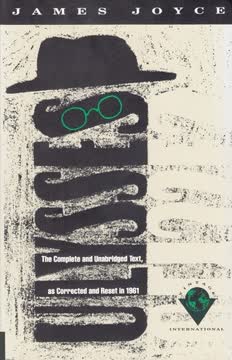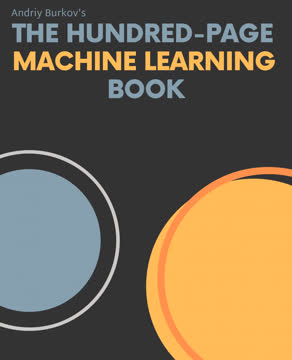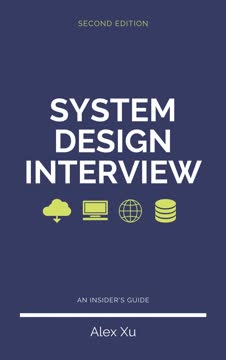Key Takeaways
1. C# Basics: Syntax, Variables, and Data Types
"Variables are names given to data that we need to store and manipulate in our programs."
Fundamental building blocks. C# is a strongly-typed language, meaning each variable must have a declared data type. Common types include int (integers), float and double (decimal numbers), char (single characters), string (text), and bool (true/false values). Variables are declared using the syntax: dataType variableName = value;
Type safety and conversion. C# enforces type safety, preventing unintended operations between incompatible types. However, it allows for explicit type conversion (casting) when needed. For example:
- int x = (int)20.9; // Result: x = 20 (decimal part truncated)
- float y = (float)10; // Converting integer to float
2. Object-Oriented Programming: Classes, Objects, and Inheritance
"Inheritance allows us to create a new class from an existing class so that we can effectively reuse existing code."
Encapsulation and abstraction. Classes in C# bundle related data (fields) and behaviors (methods) into a single unit. This encapsulation helps in organizing code and hiding unnecessary implementation details. Objects are instances of classes, created using the new keyword.
Inheritance hierarchy. C# supports single inheritance, where a derived class (child) inherits properties and methods from a base class (parent). Key concepts include:
virtualmethods in base classes can be overridden in derived classesprotectedmembers are accessible within the class and its derivatives- Constructors in derived classes can call base class constructors using the
basekeyword
3. Control Structures: Loops, Conditionals, and Exception Handling
"The try-catch-finally statement controls how the program proceeds when an error occurs."
Decision making. C# offers several constructs for controlling program flow:
- if-else statements for conditional execution
- switch statements for multi-way branching
- ternary operator (?:) for inline conditionals
Iteration. Loops allow repetitive execution of code blocks:
- for loops for known number of iterations
- while loops for conditional iterations
- do-while loops for at least one execution
- foreach loops for iterating over collections
Error management. Exception handling in C# uses try-catch blocks to gracefully manage runtime errors, preventing crashes and providing meaningful feedback.
4. Advanced Data Types: Arrays, Lists, and LINQ
"LINQ stands for Language-Integrated Query and is an interesting feature of C# that allows you to query data in your program."
Collections. C# provides several ways to work with groups of data:
- Arrays: Fixed-size collections of same-type elements
- Lists: Dynamic-size collections with built-in methods for manipulation
- Dictionaries: Key-value pair collections for fast lookups
LINQ power. Language Integrated Query (LINQ) enables SQL-like querying of in-memory data:
- Simplifies filtering, sorting, and transforming data
- Works with various data sources (arrays, lists, XML, databases)
- Uses a declarative syntax that's often more readable than imperative code
5. File Handling: Reading and Writing to External Files
"C# provides us with a number of classes to work with files."
StreamReader and StreamWriter. These classes facilitate reading from and writing to text files:
- StreamReader: Reads characters from byte streams
- StreamWriter: Writes characters to streams
File management. The File class offers static methods for common file operations:
- File.Exists(): Check if a file exists
- File.Create(): Create a new file
- File.Delete(): Remove a file
Best practices:
- Use
usingstatements to ensure proper resource disposal - Handle potential exceptions (e.g., FileNotFoundException)
- Consider asynchronous operations for large files or network resources
6. Methods and Parameters: Defining and Using Functions
"A method is a code block that performs a certain task."
Method anatomy. Methods in C# consist of:
- Access modifier (e.g., public, private)
- Return type (or void for no return)
- Name
- Parameters (optional)
- Method body
Parameter passing. C# supports different ways to pass arguments:
- By value: A copy of the argument is passed (default for value types)
- By reference: The memory address of the argument is passed (using ref or out keywords)
- Params keyword: Allows a variable number of arguments
Method overloading. C# allows multiple methods with the same name but different parameter lists, enabling flexible function definitions.
7. Polymorphism and Interfaces: Flexible Code Design
"Polymorphism refers to a program's ability to use the correct method for an object based on its run-time type."
Runtime type determination. Polymorphism allows objects of different types to be treated as objects of a common base type, with the appropriate method being called based on the actual type at runtime.
Interfaces. These define a contract of methods and properties that implementing classes must adhere to:
- Enable multiple inheritance of behavior
- Promote loose coupling between components
- Facilitate unit testing and mocking
Abstract classes. These combine aspects of interfaces and concrete classes:
- Can contain both abstract (unimplemented) and concrete methods
- Cannot be instantiated directly
- Provide a common base for related classes
8. Structs and Enums: Custom Value Types
"An enum (which stands for enumerated type) is a special data type that allows programmers to provide meaningful names for a set of integral constants."
Struct benefits. Structs are value types that can contain methods and properties:
- More memory-efficient than classes for small data structures
- Automatically implement value semantics
- Cannot participate in inheritance
Enum usage. Enums improve code readability and type safety:
- Define a set of named constants
- Can be used in switch statements for cleaner code
- Underlying type can be specified (default is int)
9. Practical Application: Building a Simple Payroll System
"This application consists of six classes as shown below: Staff, Manager : Staff, Admin : Staff, FileReader, PaySlip, Program"
Object model design. The payroll system demonstrates practical application of OOP concepts:
- Inheritance hierarchy with Staff as base class
- Specialized classes (Manager, Admin) with overridden methods
- Utility classes (FileReader, PaySlip) for specific tasks
Integration of concepts. The project combines various C# features:
- File I/O for reading employee data
- LINQ for data manipulation
- Polymorphism for pay calculation
- Exception handling for robust operation
Real-world considerations. The example highlights important software design principles:
- Separation of concerns (e.g., file reading separate from pay calculation)
- Extensibility (easy to add new employee types)
- Maintainability through modular design
Last updated:
FAQ
What's "Learn C# in One Day and Learn It Well" about?
- Beginner-friendly guide: The book is designed to help beginners learn C# programming quickly and effectively, with no prior coding experience required.
- Hands-on approach: It includes a hands-on project where readers build a simple payroll software, applying the concepts learned throughout the book.
- Comprehensive coverage: Topics range from basic syntax and data types to more advanced concepts like object-oriented programming and file handling.
- Practical examples: Each concept is demonstrated with carefully chosen examples to ensure a deeper understanding of C#.
Why should I read "Learn C# in One Day and Learn It Well"?
- Fast learning curve: The book is structured to help you start coding in C# immediately, making it ideal for those on a tight schedule.
- No prior experience needed: It assumes no prior background in coding, making it accessible to complete beginners.
- Project-based learning: The included project helps solidify your understanding by applying concepts in a real-world scenario.
- Broad exposure: It covers a wide range of topics without overwhelming the reader, providing a solid foundation in C#.
What are the key takeaways of "Learn C# in One Day and Learn It Well"?
- Understanding C# basics: Learn the basic structure of a C# program, including directives, namespaces, and the Main() method.
- Data types and variables: Gain knowledge about different data types, variable naming, and initialization in C#.
- Control flow and loops: Master control flow statements like if, switch, and loops such as for, foreach, while, and do-while.
- Object-oriented programming: Understand key OOP concepts like classes, inheritance, polymorphism, and interfaces.
What are the best quotes from "Learn C# in One Day and Learn It Well" and what do they mean?
- "The best way of learning about anything is by doing." - This quote emphasizes the book's hands-on approach, encouraging readers to actively engage with coding exercises.
- "Topics are carefully selected to give you a broad exposure to C#, while not overwhelming you with information overload." - It highlights the book's balanced approach to teaching, ensuring comprehensive yet manageable content.
- "Once you master C#, you will be familiar with these concepts. This will make it easier for you to master other object-oriented programming languages in future." - This quote underscores the transferable skills gained from learning C#, which can be applied to other programming languages.
How does "Learn C# in One Day and Learn It Well" approach teaching C#?
- Step-by-step guidance: The book provides clear, step-by-step instructions for each concept, making it easy to follow along.
- Practical examples: Each topic is illustrated with practical examples that demonstrate how to apply the concepts in real-world scenarios.
- Project-based learning: The book includes a project that ties together all the concepts learned, reinforcing understanding through practical application.
- Focus on fundamentals: It emphasizes understanding the fundamentals of C#, ensuring a strong foundation for further learning.
What is the hands-on project in "Learn C# in One Day and Learn It Well"?
- Payroll software: The project involves coding a simple payroll software from scratch, applying the concepts covered in the book.
- Real-world application: It provides a practical context for learning, helping readers see how C# can be used to solve real-world problems.
- Concept integration: The project integrates various topics such as object-oriented programming, file handling, and control flow.
- Source code availability: Readers can download the source code for the project, allowing them to compare their work and learn from the provided solution.
What are the basic concepts of C# covered in "Learn C# in One Day and Learn It Well"?
- Program structure: Learn about the basic structure of a C# program, including directives, namespaces, and the Main() method.
- Variables and data types: Understand how to declare, initialize, and use variables, as well as the different data types available in C#.
- Operators: Get familiar with basic operators like addition, subtraction, multiplication, division, and modulus, as well as assignment operators.
- Arrays and strings: Explore advanced data types like arrays and strings, including their properties and methods.
How does "Learn C# in One Day and Learn It Well" explain object-oriented programming?
- Class and object creation: Learn how to write your own classes and create objects from them, understanding the blueprint-object relationship.
- Fields and properties: Understand the role of fields and properties in encapsulating data within a class.
- Methods and constructors: Discover how to write methods and constructors, including overloading and the use of the static keyword.
- Inheritance and polymorphism: Explore how inheritance allows code reuse and how polymorphism enables method overriding in derived classes.
What advanced topics are covered in "Learn C# in One Day and Learn It Well"?
- Exception handling: Learn how to use try-catch-finally statements to handle errors and exceptions in your programs.
- File handling: Understand how to read from and write to external files using classes like StreamReader and StreamWriter.
- LINQ: Get introduced to Language-Integrated Query (LINQ) for querying data in your programs.
- Enums and structs: Explore user-defined data types like enums and structs, and understand their use cases.
How does "Learn C# in One Day and Learn It Well" address error handling?
- Try-catch-finally: The book explains how to use try-catch-finally statements to manage exceptions and ensure resources are released properly.
- Specific exceptions: Learn about handling specific exceptions like FileNotFoundException and FormatException for more precise error management.
- Error messages: Understand how to display meaningful error messages to users when exceptions occur.
- Preventing crashes: The book emphasizes the importance of error handling in preventing program crashes and ensuring smooth execution.
What is the significance of the Main() method in C# as explained in "Learn C# in One Day and Learn It Well"?
- Entry point: The Main() method is the entry point of all C# console applications, where program execution begins.
- Method signature: It can take an array of strings as input, allowing command-line arguments to be passed to the program.
- Code execution: The book explains how to write and execute code within the Main() method, including calling other methods and classes.
- Program structure: Understanding the Main() method is crucial for grasping the basic structure and flow of a C# program.
How does "Learn C# in One Day and Learn It Well" explain the use of control flow statements?
- If and switch statements: Learn how to use if and switch statements to make decisions and control the flow of your program.
- Loops: Understand the use of loops like for, foreach, while, and do-while for repeating tasks and iterating over collections.
- Jump statements: Explore jump statements like break and continue for altering the flow of loops and switch statements.
- Practical examples: The book provides practical examples to demonstrate how control flow statements are used in real-world scenarios.
Review Summary
Learn C# in One Day and Learn It Well receives generally positive reviews, with readers praising its concise and clear explanations for beginners. Many find it helpful for experienced programmers learning C# or refreshing their skills. The book is commended for its practical approach, including exercises and a final project. Some critics note it may not be suitable for absolute beginners or those seeking in-depth coverage. Overall, readers appreciate its straightforward style and ability to quickly grasp C# fundamentals, though some suggest supplementing with additional resources for a more comprehensive understanding.
Similar Books
Download PDF
Download EPUB
.epub digital book format is ideal for reading ebooks on phones, tablets, and e-readers.

















